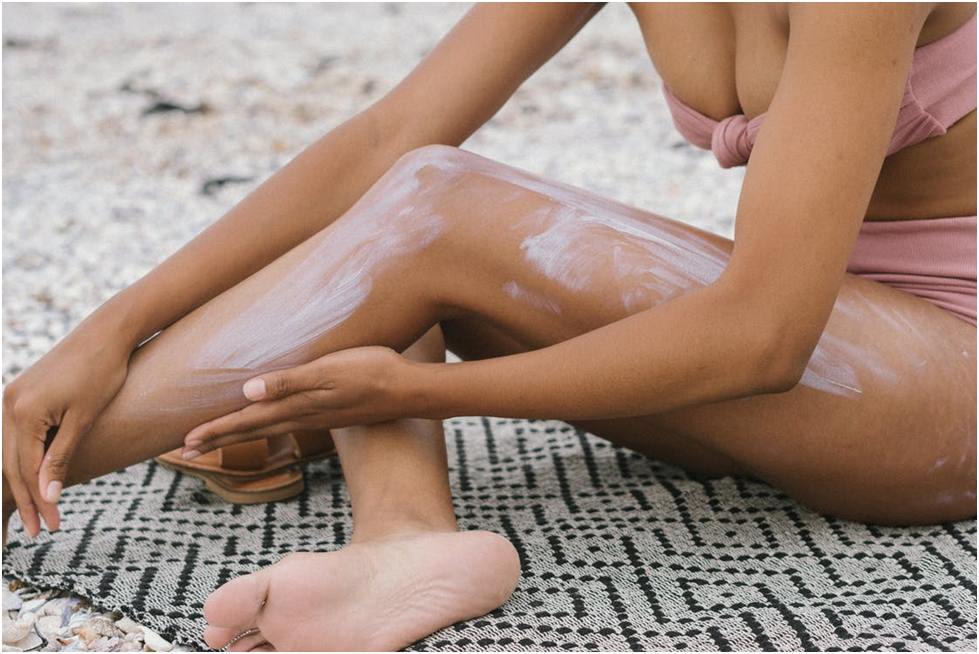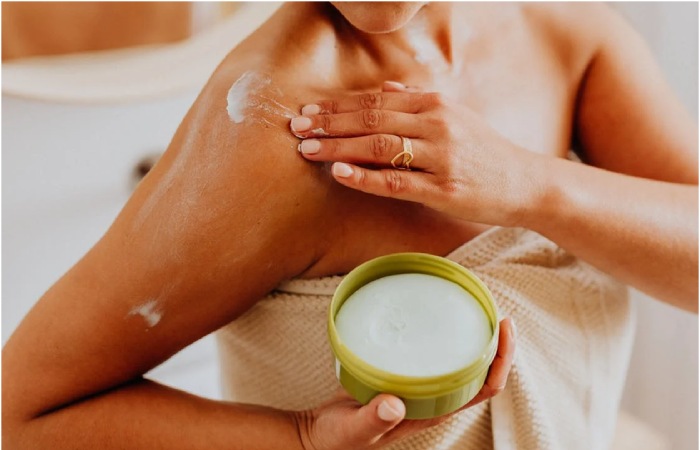When the humidity lowers, maintaining your same skin care regimen might not be as effective. Dry air can accentuate wrinkles and fine lines if you don’t adjust the way you take care of your skin. Skin that is dry and irritating may crack, flake, or even bleed.
Table of Contents
How Does Skin Dryness Being Diagnosed?
Your doctor will likely check you and inquire about your medical history in order to identify dry skin. You could talk about the onset of your dry skin, your bathing routine, and overall, how you take care of it.
In order to determine whether a medical ailment, such as an underactive thyroid, is the source of your dry skin, your doctor may advise that you undergo some testing. Dry skin is frequently a sign of another skin ailment, like dermatitis psoriasis so it’s also something that should be checked.

Dermatologists advise the following for treating dry skin and preventing its recurrence.
Apply cleanser gently
After a shower, wash with a cleanser without soap and you may follow-up with a hydrating cream. However, mild soaps without aroma are a fantastic choice. Avoid products with antibacterial or deodorant ingredients because they can be abrasive to the skin.
You may also avoid using peels, toners, and other astringents containing alcohol because they dry up the skin. When it comes to exfoliating, refrain from scrubbing too vigorously as it might make the skin thicker and itchy.
Moreover, the outer layer of your skin is composed of fatty molecules called ceramides, thus you may consider using a ceramide-containing cleaner as they assist the skin in retaining moisture.
Moisturize often with healing ingredients
Apply moisturizer or hydrating cream frequently throughout the day, particularly when your skin feels dry and after washing your hands or after taking a bath. In that connection, find out from your doctor which products are best for your skin type and condition.
You may also consider products with ceramides, urea, glycerol, fatty acids, cocoa butter, and shea butter as these substances are therapeutic. Furthermore, look for products without fragrances that are non-comedogenic (not prone to creating acne) and don’t contain allergens (hypoallergenic). Products with sodium lauryl sulfate should be avoided since they dry the skin.
Opt for fragrance-free skin care products
Deodorant soaps are one example of a skincare product that is too abrasive for dry and sensitive skin. Dermatologists advise utilizing skincare products that are labeled “fragrance-free” instead of “unscented”.
Those that are labeled unscented may contain chemicals that mask or neutralize the smells of other substances. In other words, these products may be a trap for you thinking that they’re all good because they don’t have any scent but with ingredients that can irritate your skin, you might experience flaking and drying out.
Wear sunscreen and cover-up
One of the main reasons for wrinkles, roughness, and dryness is sun damage. By clothing appropriately and using a broad-spectrum SPF 30 sunscreen all year long, you can help avoid that harm.
You may also dress in layers to prevent overheating and excessive perspiring as both can irritate the skin” in cool weather. Use a lip balm with SPF 15 sunscreen and cover your lips with a scarf to avoid dry and chapped lips in the winter.
When out in the sun during the summer, wear light and loose long sleeves and a hat with a 2-inch broad brim to protect your eyes, ears, and neck.
Minimize your bath time and use lukewarm water
Try to use lukewarm water every day when you shower and avoid hot water as it can dry your skin out. Additionally, try to keep your bath or shower time to fifteen minutes or less. No more than one bath each day is recommended. Bathing too frequently will strip the skin of its natural oils, resulting in dryness. Also, you can use essential oils for eczema.
Use non-irritating fabric
Always remember to wear clothing that allows your skin to breathe, such as cotton which is a natural fiber. Wool may be a natural fiber as well, but it can also irritate healthy skin, so just be wary about that.
When it comes to laundry detergents, use those that are free of colors and fragrances, which can irritate your skin.
Consider a humidifier
Dry and itchy skin is frequently brought on by cold, dry air. While heating your home keeps you comfortable, it also dehydrates the air, which can exacerbate dry skin problems.
Use a humidifier in your bedroom to simply and quickly replace any lost moisture. A hygrometer, a low-cost humidity meter, makes tracking humidity simple. Aim for an indoor humidity level of roughly 50%.
What’s Next?

It should take a little time for your skin to feel improved with our above solutions. However, you might want to visit a dermatologist if these solutions do not provide relief. A prescription ointment or hydrating cream may be necessary for extremely dry skin, and your doctor might prescribe other tests that would determine the cause of your dry skin. From there, your doctor can set you up for a regimen that works best for your situation.

